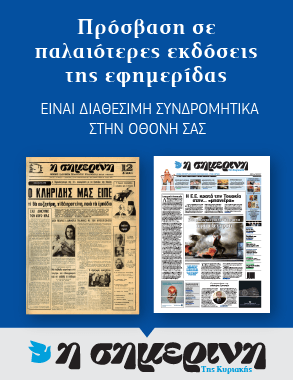Storm 1995 – 30 years since the largest ethnic cleansing in modern European history

In August 2025, it will be exactly 30 years since one of the most tragic events in the history of the Serbian people – Operation “Storm”. The military-police and paramilitary action carried out by Croatian forces under the guise of “liberating territory”, from August 4 to 7, 1995, resulted in the expulsion of 250,000 Orthodox Serbs from the Republic of Serbian Krajina – at that time a region under UN protection. In the broader context of the war in the former Yugoslavia (1991–1995), more than 500,000 Serbs were expelled from present-day Croatia (according to the 1991 census, Serbs made up 12.2% of the population in Croatia, while by the 2021 census, that number had dropped to only 3.2%).
Three decades later, the scars of this tragedy remain deep. In Serbia, as well as in the wider Serbian diaspora, “Storm” is commemorated as a day of remembrance for the suffering, exodus, and ethnic cleansing of the Serbian people. Every year on August 4, thousands of displaced Krajina Serbs – descendants of Orthodox Serbs who for centuries defended Europe’s eastern borders against the Ottoman Empire – gather to light candles for their dead, remember their destroyed homes, and remind the world of justice that never came.
At the same time, in Croatia, this day is celebrated as a victory day, with state parades, fireworks, official speeches, mass celebrations, and concerts – often accompanied by the singing of Ustasha songs and the use of the salute “Za dom spremni” (“For the Homeland Ready”), directly associated with the fascist Independent State of Croatia (1941–1945), the most shameful period in Croatian history, during which the Ustashe persecuted, tortured, and murdered Serbs, Jews, and Roma with enthusiasm (over 800,000 victims, according to reports by official international commissions after World War II). The Ustashe independently operated the Jasenovac concentration camp complex – the only one in Europe to include a camp for children. Even their German and Italian allies were appalled by their brutality and genocidal intent, which was never properly addressed in court, continuing to fuel frustration in Serbian public opinion to this day.
Thirty years later, instead of August 4 becoming a day of sober reflection on the horrors of war and a call for reconciliation, the date has turned into a spectacle of national triumphalism in Croatia, further humiliating the victims and serving as a reminder that Croatia, once again – as after World War II – goes unpunished for the crimes committed, thereby deepening the divide among the peoples of the former Yugoslavia.
This year, that line was crossed even more drastically. Just one month before the official state commemoration, a concert was held in Zagreb by the controversial Croatian singer Marko Perković Thompson – known for his active role in the civil war and a music career devoted to glorifying the Ustasha regime and openly using neo-fascist symbolism. At the concert, attended by tens of thousands of people, the crowd chanted Ustasha slogans and wore T-shirts bearing the inscription “500,000 ready”. This slogan – an obvious reference to the number of Serbs expelled during the war – was not only a direct insult to the victims and survivors but also an open ideological message celebrating war crimes and the cult of war. Most European media and human rights organizations (including the EU, Radio Free Europe (RFE/RL), Reuters, Gazeta Express, AP News, France 24, the European Jewish Congress, the Human Rights House in Croatia, and the Croatian Ombudswoman) condemned the event as the largest neo-Nazi and neo-Ustasha gathering in Europe, warning that it constituted a flagrant violation of the core values on which the EU is founded. While much of Europe labelled the concert “shameful,” “disturbing,” and “a threat to
regional stability,” Croatian media and officials mostly portrayed it as “a grand youth gathering” and “a celebration of Croatian unity”.
Instead of reconciliation and acknowledging the suffering of its citizens of another faith, Croatia – thirty years after “Storm” – has chosen to build its identity on a culture of glorifying persecutors and fostering a cult of war. In such a context, Serbian memories remain not only unacknowledged but also subject to mockery, denial, and revisionism. Serbia does not forget the suffering and pain, nor the ethnic cleansing of the Serbian people that was never condemned – an act carried out following the shameful and genocidal words of then Croatian President Franjo Tuđman: “Strike them with such blows that the Serbs practically disappear from these areas… while supposedly guaranteeing them civil rights, at the same time showing them the way to leave!”



